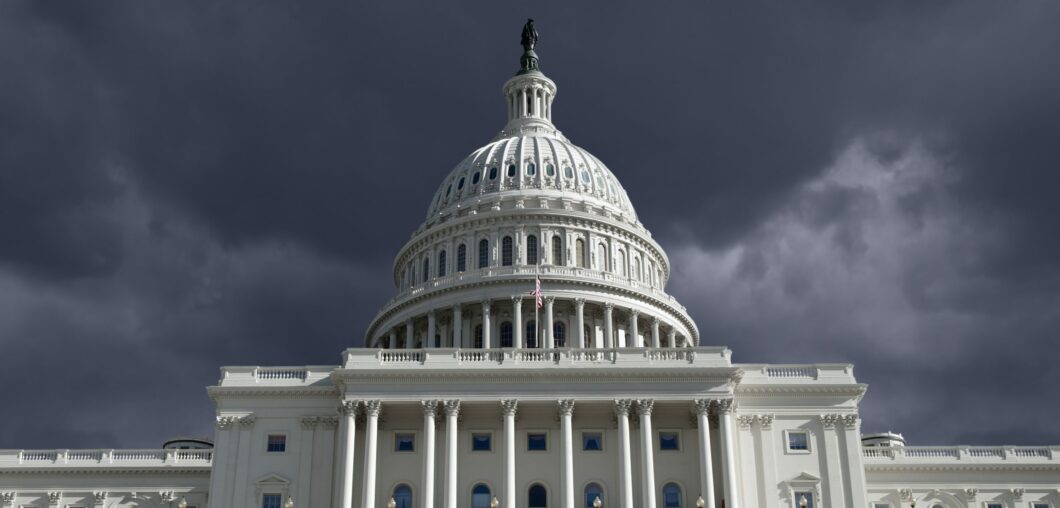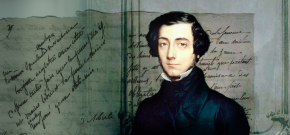The Ciceronian Society looks to reestablish a conservative community rooted in friendship rather than the pursuit of political goals.
Patrick Deneen’s Lost Opportunity
The political theorist Patrick J. Deneen has written a book that in places is admirably discerning and challenging, while finally being overstated, one-sided, and unduly polemical towards a number of thinkers and critics (mainly conservative) whom he is determined to caricature and denounce. His book, Regime Change: Toward a Postliberal Future, is therefore a lost opportunity, since a decayed and decaying liberalism (and multiple forms of ossified conservatism) are desperately in need of firm yet constructive criticism that points the way forward to a revitalized political order. Such a political order would, in a non-utopian spirit, attempt to do justice to the tension-ridden requirements of truth and liberty, body and soul, and civilized progress and civilized continuity. Whether such a step forward constitutes “regime change” in anything other than a metaphorical sense is another matter altogether. Given what Deneen delivers, his title provokes but surely overstates, and thankfully so.
Deneen is at his most eloquent when he takes aim at “expressive individualism” in all its forms. In this radicalization of liberal freedom, which Deneen mistakes for the heart and soul of historic liberalism, “the wide-open spaces of liberal freedom” amount to little more than “a vast and widening playground for the project of self-creation.” The theorist par excellence of the “open society,” with its accompanying contempt for received traditions and the wisdom inherent in customary morality, is John Stuart Mill, the author of On Liberty, which Deneen rightly sees as the bible of anti-traditional liberalism. Deneen convincingly shows how a world made safe for what Mill called “experiments in living,” and contemptuous of custom as mere “despotism,” is a world that in due time makes the experimental, the anti-traditional, and the transgressive obligatory. Such a political and social order has little place for religious believers, ordinary people attached to custom and routine, and even the philosophically minded who esteem natural limits and the reservoirs of common sense that define the continuity of civilization.
Deneen’s book is particularly good on how quickly radical openness is transformed into a new coercive order, where the experimental and transgressive become obligatory and, indeed, coercive. But since Deneen denounces almost every hitherto existing conservative thinker as no more than a “right liberal,” more Millian (or Lockean) than authentically conservative, he cannot acknowledge his conservative forebears in the critique of expressive individualism and the excessively “open society.” Willmore Kendall’s powerful book The Conservative Affirmation comes to mind, as does the work of the great intellectual historian Gertrude Himmelfarb, who so thoughtfully defended Victorian good sense (and its defense of decency and sexual restraint) against its cultured despisers. Deneen preaches the virtue of gratitude, and for that, he is to be applauded. But he rarely practices it, since he sees the heresy of “right liberalism” everywhere, and therefore cannot generously acknowledge the wisdom that, knowingly or unknowingly, has shaped his own reflection.
Are all conservatives in fact rigid Lockeans who deprecate “unchosen obligations” to family and country? Does the defense of the market economy automatically make one an advocate of revolutionary change at the expense of civilized continuity? One can think of dozens of examples to the contrary! Is Deneen the first to limn a political and philosophical critique of what Eric Voegelin so suggestively called “modernity without restraint”? To ask these questions is to answer them immediately in the negative. His polemical typology or classificatory scheme is thus too simple and narrow, constructed to make his task easier, but at the cost of unfairness and ingratitude.
Deneen rightly takes aim at the faux egalitarianism of progressive elites who live safely in their prosperous enclaves while promoting moral and cultural relativism, woke ideology, racial resentment, and transgressive sexual morality. Their egalitarianism largely takes the form of identity politics, sexual and racial, which gives them “cheap grace” (or self-satisfaction), while they selfishly benefit from a “meritocratic” system that rewards credentialing and participation in a globalized economy. The corporate world to which they flock funds the forces of moral subversion, even if those forces are ideologically opposed to the market order and the moral discipline which for a long time gave it ballast and support. To be sure, Deneen is equally opposed to capitalism as well as to woke ideology. For him, what Deirdre McCloskey called “the great enrichment” made possible by a dynamic market order is passed over in near silence. Locke’s “rational and industrious” are almost always identified with the rapacious and unjust by Deneen. This surely goes too far.
As much as any Marxist, the “working class” are for Deneen the heroes of history—and always the victims of unscrupulous elites. As for the middle class, except for passing reference to the discussion of the “middling” element in Aristotle’s Politics, they get little mention or attention in Deneen’s book. But America is still a largely bourgeois society. Deneen paints class relations in the darkest colors with little evidence of anything positive to note about the market order over the past few centuries. Economic growth can be destabilizing, but does it not lift the poor out of grinding poverty? Our author makes a plausible argument for a conservative welfare state, but never stops to reflect on how such an expanded welfare state might be in tension with his marked preference for localism and decentralization and his critique of elite expertise.
Deneen completely ignores the argument of Michael Novak in The Spirit of Democratic Capitalism and of Wilhelm Röpke even earlier in The Humane Economy that the free market crucially depends on a moral realm that teaches competing economic actors to act decently and to respect the law, both civic and moral. The “right liberal” argument about capitalism’s dependence on an older bourgeois morality and on the moral capital of the civilized West, limned by the likes of Daniel Bell and Irving Kristol in the 1970s, should not be ignored or dismissed so cavalierly. It is an argument worthy of continuing attention and respect. And some serious attention to the failures of socialism in all its forms, and of the welfare state’s role in creating dependence and in undermining two-parent households, would make Deneen’s argument more balanced and perhaps more compelling. One does not truly win an argument when one is constantly taking aim at straw men.
In a chapter by that name, Deneen overstates “the wisdom of the people.” Of course, conservatives have a long-stated preference for the “common sense” of the people over the rationalist abstractions and the sophisticated moral relativism (and even nihilism) of deracinated intellectual elites. At his best, Deneen renews that tradition. His critique of a vision of education, such as the philosopher John Dewey’s, that privileges reconstruction and transformation over cultural transmission is most welcome. Deneen is also right to admire Edmund Burke’s critique of radical moral innovation, and of aggressive hostility to traditional wisdom, as being disruptive of decent and civilized life, even as it ignores “the general bank and capital of nations and ages.” That moral capital, so hard to renew, safeguards tried and true wisdom accrued over time. But this is less the wisdom of the people per se, than the wisdom accrued by the many and the few, informed by the best philosophical and religious wisdom, as well as by the practical wisdom that arises from lived experience. Common sense, and the Burkean notion of “prejudice” connected to it, must respect popular wisdom while recognizing that the good sense of ordinary people must ultimately be grounded in ratio, what Cicero aptly called “right reason.” Perhaps this is the reason why Deneen goes on to call for a new “mixing” of the few and the many in the most theoretically rich chapters of the book, “The Mixed Constitution” and “Aristopopulism.”
In those chapters, Deneen competently restates the various forms that the mixed constitution, the melding of the few and the many, took in the thought of Aristotle, Polybius, Aquinas, Burke, Disraeli, and in Tocqueville (the latter thought deeply about the few and the many, while deriding a too explicit form of the mixed constitution as a “chimera,” since ultimate authority must finally rest somewhere). Deneen is deeply critical of today’s “managerial elite,” a term originally coined by James Burnham, another establishment conservative intellectual who doesn’t fit the caricature of the “right liberal.” But Deneen is hopeful that with the right education, one that eschews “gnostic indoctrination” and contempt for natural limits and hard-fought traditional wisdom, the few can relearn the moral and political responsibilities appropriate to a “mixed constitution.” In itself, that is a laudable goal. He therefore asks for no explicit change to the American constitution or the institutions that it made possible, except for expanding the number of congressmen to 5,000 or so from the present 435. That change may be in the right direction in order to make Congress less oligarchical and more representative. But its immediate effect would be to create chaos on a massive scale. Prudence would dictate that it is a bridge too far.
Moreover, Deneen’s relative sobriety about radical institutional change is undermined by extreme talk about the need for using “Machiavellian means to achieve Aristotelian ends.” I am with Deneen if he means to suggest that those committed to defending civilized liberty today must be active and tough-minded in resisting the elite forces of negation and repudiation. But Machiavellianism is never just about means, but always about the dialectic of means and ends (with both hardly respectful of natural limits and the moral law). Deneen thus allows a strong dose of moral subversion into his tradition-minded “common-good conservatism.” My hunch is such a nod to modernity without restraint cannot end well.
To navigate the different demands of continuity and progress requires the highest wisdom.
I am obliged to end on a critical note since on several matters of great importance the author of Regime Change dispenses with the nuances and qualifications that are essential to political moderation and serious political philosophizing. In the book, the Founders are disparaged throughout and the high-toned conservative elements to be found in the collectively-written Federalist Papers are passed over in silence. The sobriety of Publius, his commitment to republican self-government (see Federalist #1 and #39), his defense of shared mores and traditions (Federalist #2), the quasi-classical defense of wise political deliberation and a high-toned Senate (Federalist #63), and his attempt to meld the ambition of the few and the rights of the people, are certainly still worthy of respect by conservatives and American patriots more broadly. Nor does Publius reject the “common good,” which in the Federalist Papers (# 51) goes by the name “justice and the general good.” To reduce the courage and political wisdom of our constitutional founding to a manipulative defense of self-serving elites against wise people simply lacks all verisimilitude.
In addition, while it is true that, for the likes of Burke and Tocqueville, “to be liberal was simply to partake in the civilized inheritance of the Christian West,” as Deneen puts it, it is more than that. Burke and Tocqueville were also thoughtful (and spirited) partisans of civil, political, economic, and religious liberty. They were at once conservatives and “right liberals,” partisans of old wisdom in the emerging world of modern liberty. Deneen’s strategy of identifying all forms of conservative liberalism with “neutral principles” and philosophical modernism hardly does justice to a rich tradition of conservative liberalism or liberal conservatism that Deneen himself repeatedly draws upon.
Tocqueville, for example, who is rightly one of Deneen’s heroes, would never disparage religious liberty as simply “privatizing” and weakening the religion of the West, as Deneen does. In his Letter on Toleration, John Locke certainly meant to promote a radical separation of politics and religion, statecraft and soulcraft. But that is not what Tocqueville meant by religious liberty, nor fellow Catholics such as Orestes Brownson, St. John Paul II, and Benedict XVI, who saw in it a precious protection for the Church as an institution, and for the believers and unbelievers alike, against soul-destroying despotism. With religious liberty threatened from several quarters today, including an aggressive and dangerously illiberal secularism, it is arguably more urgent and more principled to defend it, than to seek some chimerical regime change.
Patrick Deneen should be applauded for challenging the facile and reckless ideology of Progress which ignores the unchanging features of the human condition and the paramount need to defend the continuity of civilization and the goods of the human soul. In juxtaposition to a frenzied politics of progress, Deneen lauds the common good as the measure of a free and decent society. About that, he is not wrong. As Bertrand de Jouvenel pointed out in his brilliant discussions of the “common good” and “social friendship” in his 1955 classic Sovereignty: An Inquiry into the Political Good, “every man who finds himself dressed in the smallest degree of authority over another (and that is the case with the least important citizen of a republic) is bound to form some conception of the good which he hopes to achieve by the exercise of the power which is his. Will he use it, small though it may be, despotically by making the good sought only his own good, or will he use it properly in the interest of a good which is in some way common.”
On this, we all can agree. But Jouvenel went on to affirm that we today must find the common good, which he defines as the “mutual trust” that binds citizens, in a free republic that is dynamic and not closed, uniform, homogenous, small, and excessively (and impossibly) stable. That is our situation and our fate as modern people. To navigate the different demands of continuity and progress requires the highest wisdom. Jouvenel adds that Plato and Rousseau were right to be preoccupied with “moral harmony in the City.” But the ancient City is not our free republic; as Deneen’s teacher Wilson Carey McWilliams once wrote, the task that lies before us is to bring “old gods to a new city.” That will demand a genuinely dialectical mode of inquiry and reflection, one not guided by nostalgic memory or utopian hope for a harmonious city that can only exist in speech.
Let us conclude with a final caveat inspired by the great Russian writer Aleksandr Solzhenitsyn, the most astute and hard-hitting critic of the ideology of Progress in the twentieth century. In a 1993 speech at the Vendée in France, he noted that “we have lived through the twentieth century, a century of terror, the chilling culmination of that Progress about which so many dreamed in the eighteenth century.” Solzhenitsyn thus constantly warned against identifying technical or scientific “progress” with the moral progress of the human race. Such an identification is false and blind to fundamental realities. But in his valedictory address to the West at Liechtenstein that same year, the Russian writer remarked that there is another sense in which technical “progress” can only be limited and informed by traditional wisdom, rather than being unilaterally “stopped.” Solzhenitsyn wisely suggested that “it is up to us to stop seeing Progress (which cannot be stopped by anyone or anything) as a stream of unlimited blessings, and to view it rather as a gift from on high, sent down for an extremely intricate trial of our free will?” This is a nuanced perspective that might join Deneen’s most important insights with a certain prudence and spiritual maturity that, alas, is too often lacking.
One can draw a valuable lesson from Deneen’s heavy-handedness: One should not oppose ideology in an ideological spirit that finds enemies (“right Liberals,” “the free market”) where they need not exist. But I am nonetheless grateful to my old friend Patrick Deneen for raising many of the right questions and for challenging shibboleths that need to be challenged.


